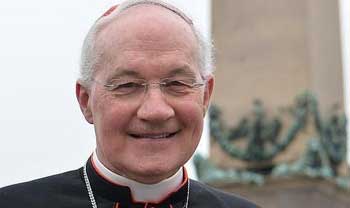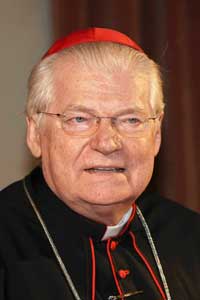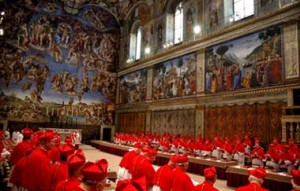Cardinal Ouellet: The Cosmopolitan
As head of the Congregation of Bishops, Marc Ouellet (68) is kind of a staff manager at the Vatican. Pope to be “would be a nightmare,” Ouellet was once quoted. However, his chances are not bad at all.
Ouellet is a cosmopolitan who speaks also German, Portuguese, and Spanish in addition to French and English. Although the former Ratzinger students is well networked within the Curia, the widespread secularism in his home province of Quebec could speak against him as the new Pope.

In theological questions, he appears strict and conservative. Among other things he spoke out publicly against abortion and gay marriage. His supporters believe he would make a modest Pope and a deeply faithful defender of the Catholic identity. For his critics, as a Ratzinger student, he is to similar to Benedict XVI.
Ouellet was born in 1944, in Amos (Quebec), in a French-speaking family with eight children. He studied theology in Montreal, was ordained a priest in 1968 and became in 1972 the Sulpician Order. In Innsbruck, he continued his studies. On March 3 2001, Pope John Paul II. appointed the Canadian, Secretary of the Ecumenical Council at the Vatican. A year later he was appointed Archbishop of Quebec, and Cardinal in 2003. 2010, Ouellet became Prefect of the Congregation of Bishops and President of the Pontifical Commission for Latin America.


